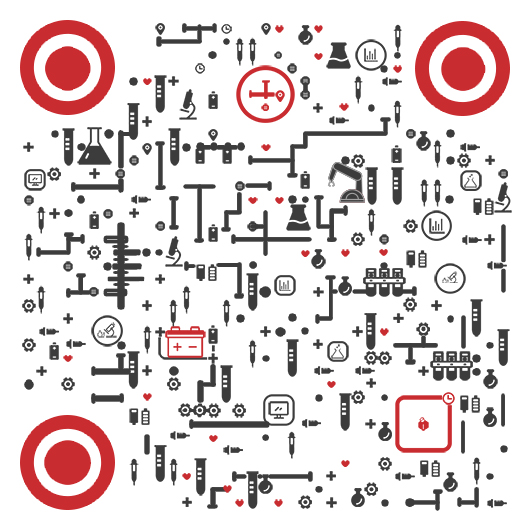Philippines Certification
ICC Certification
Certification Introduction
Currently, there are two mandatory certification systems for Philippine products.
1、Philippine Standards Certification Scheme (PS System)
This system is applicable to products manufactured in the Philippines. After the product has been evaluated for compliance with Philippine National Standards (PNS) or internationally accepted foreign standards (e.g. IEC standards), the Philippine Department of Industry and Commerce (DTI, Department of Trade and Industry) will issue a PS Certificate of Approval to the manufacturer. With this certificate, the manufacturer can put PS product safety mark or PS product quality mark on the product or product packaging before entering the market.
2, import commodity licensing system (Import Commodity Clearance, ICC system)
The system is applicable to imported goods. Imported goods that fall within the coverage of the mandatory Philippine National Standards (PNS) need to be evaluated by the Bureau of Product Standards (BPS) to meet the requirements of the corresponding Philippine National Standards or internationally accepted foreign standards before DTI will issue an ICC license certificate to the importer of the product, permitting it to apply the ICC mark. The imported products will be subject to sampling and testing. In addition, the Philippine Sea will conduct random market sampling to ensure that the imported goods meet the requirements of the corresponding PS standards.
At present, there are a total of 62 products in five major categories within the mandatory scope.
Household appliances, including: refrigerators, washing machines, air conditioners, electric fans, irons, kitchen mixers, microwave ovens, rice cookers, coffee makers, AV products, ovens, electric heaters.
2.Lamps and related products lamps and related products, including: LED lamps, ballasts, CFLs, Christmas light strings, fluorescent lamps, incandescent lamps, lamp holders, etc.
3. Wiring devices, wires and cables wire and wiring apparatus, including: circuit breakers, resistors, PVC, etc.
4.Mechanical/building construction materialsMechanical and construction materials.
5. Chemical other consumer products.
Please contact us directly to confirm whether the specific product is within the mandatory range
Application Process
Way one: Arrived sample testing, sampling test after arrival
When the goods arrive at the port, BPS judges that the product is within the mandatory scope and issues a "test request" to the local importer, assigns a qualified inspection agency to inspect the goods, and randomly draws samples and sends them to a qualified laboratory for testing. After passing the test, BPS issues ICC certificate and the importer uses the ICC certificate to purchase ICC mark.
Way two: Advance sample testing, send samples for testing before arriving at the port
Before the arrival of the goods, the customer applies to BPS in advance for a "private request" and sends a sample to a qualified laboratory in the Philippines to arrange for testing.

Certification Mark
Other Information
Technical information: voltage frequency AC 220V/60Hz, plug IEC60884-1, IEC60083
Whether mandatory: mandatory
Certificate validity: Based on the product, such as air conditioners / washing machines valid for 1 year, refrigerators 18 months
Factory inspection requirements: ICC does not require factory inspection, if it is to the port sampling test application method, the need to inspect the goods. PS requires factory inspection (TUV / SGS)
Permittee requirements: the need for local importers or agents
PEEP Energy Efficiency Certification
Certification Introduction
Energy efficiency certification in the Philippines is controlled by the Department of Energy (DOE), and energy efficiency standards are set by the Bureau of Product Standards (BPS). DOE implements energy efficiency certification for eight products under the PhilippineEnergy Efficiency Project program (PEEP), as detailed in the table below.
Testing needs to be completed at a DOE-authorized laboratory. Energy efficiency certification, as part of the ICC system, also meets the ICC application process in two ways. After passing the safety and energy efficiency tests, apply for an ICC certificate and affix the ICC mark as well as the energy efficiency mark, as shown below.
Product Range
Mainly covering the following 8 products.
Compulsory Products | Energy efficiency standards |
Air Conditioning | PNS 396-1:2007 (replaces PNS 396-1:1998); PNS 240:1998 (ISO 5151:1994) |
Refrigerators & Freezers | PNS 396-2 :2013 (replaces PNS 396-2:1997); |
Audio and video equipment | DPNS 2098-1:2013 |
Washer and dryer | DPNS 396-3:2013 |
CFL compact fluorescent lamps | PNS 2050-2:2007; PNS IEC 969:2006 |
Ballast | pns 2050-4:2007; pns iec 60921:2006; pns iec 60929:2006 |
Double-ended fluorescent lamps | PNS 2050-1-1:2007; PNS IEC 60081:2006 + Amd.2:2006 + Amd.3:2006 |
Single-ended fluorescent lamps | PNS 2050-1-2:2006; PNS IEC 60901:2001 + Amd.1:2006 + Amd.2:2006 + Amd.3:2006 |
Application Process
1. The customer prepares samples and documents and submits the application to Waltek
2. Waltek submits the samples to the laboratory for testing
3. The issuing agency will review the test report and issue the energy efficiency certificate after the audit is passed
Certification Mark

Other Information
Technical information: voltage frequency AC 220V/60Hz, plug IEC60884-1, IEC60083
Whether mandatory: mandatory
Certificate validity: 3 years
Factory inspection requirements: No requirements
Licensee requirements: local importer or agent required
NTC Wireless Certification
Certification Introduction
The National Telecommunications Commission (NTC) is the regulatory body for wireless and telecommunications in the Philippines, and all wireless and telecommunications products must be licensed by the NTC before they can enter the market. Only locally registered companies can act as NTC licensees.NTC accreditation is divided into Type Approval and Type Acceptance.
1.Type approval for telecommunication products, such as telephones, fax machines, etc.
2. Type acceptance for wireless products.
NTC accepts EMC&RF&TELECOM test reports for CE, FCC, IC, C-tick, etc. and safety reports recognized by CB or NB.
Product Range
Wireless Communication Products
Application Process
1、Customer prepares samples and documents and submits the application to Waltek
2、Waltek conducts the test
3. NTC will audit the test report and issue the certificate after the audit is passed
Labeling Requirements
None, only need to mark NTC certificate number
Other Information
Technical information: voltage frequency AC 220V/60Hz, plug IEC60884-1, IEC60083
Whether mandatory: mandatory
Certificate validity: No validity
Factory inspection requirements: No requirements
Licensee requirements: Local importer or agent required


 Telephone
Telephone  Contact
Contact